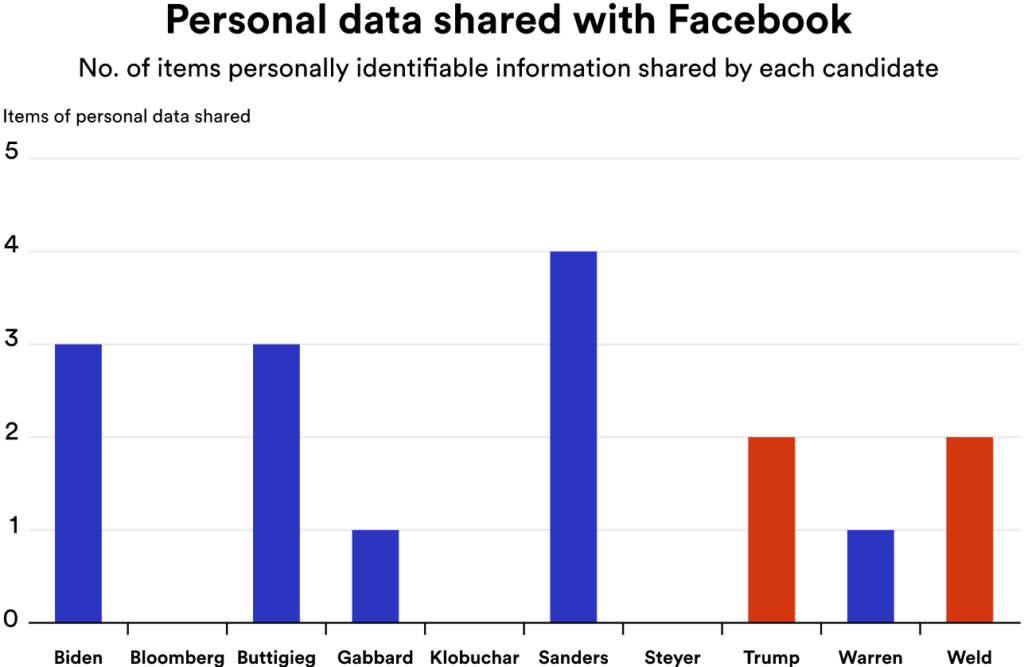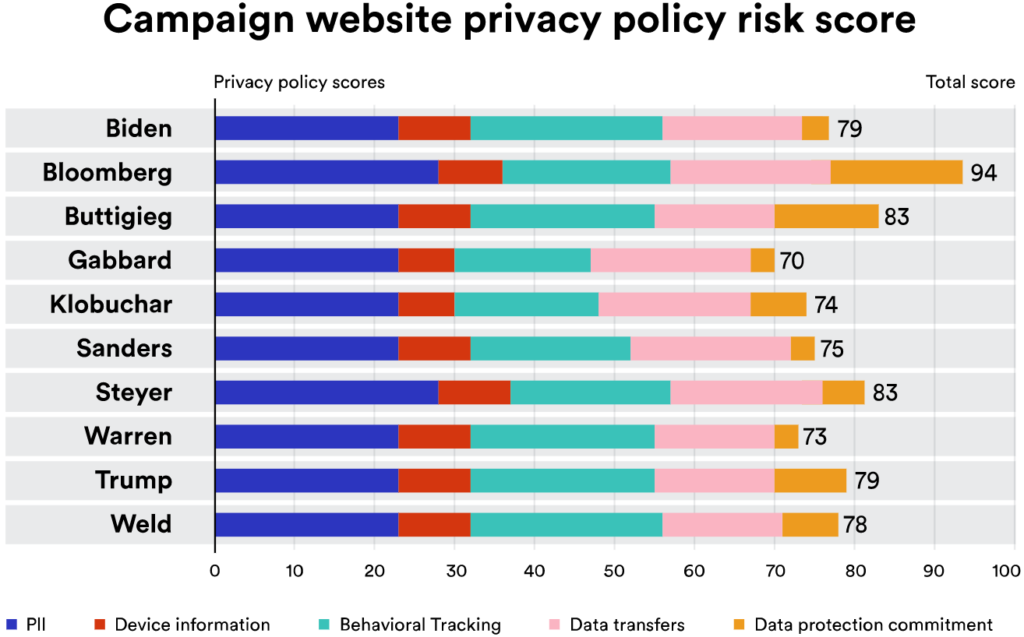
Which 2020 US Presidential Election Candidate is Tracking Voters the Most?
- The 2020 US Presidential Election candidates are doing everything they can online, including pushing targeted ads to voters.
- Sanders was the negative surprise of the report, sharing PII with Facebook, and using quite a few trackers.
- Overall, Democrats are taking a more aggressive approach than their Republican counterparts.
Four years have passed since Trump's triumph in the 2016 US Presidential Election and the controversial voter-tracking systems that were deployed by the campaign managers then. Cambridge Analytica was fetching rich sets of data from Facebook, Google, Snapchat, Twitter, YouTube, and from anywhere else they could to spot undecided voters in claimable states so they could bombard them with targeted messages. These messages aimed to influence their opinion and to make them favor the Republican direction. Today, US citizens are by no means protected against these practices, and as we discussed in December 2019, Trump’s 2020 campaign is already using device tracking software.
Top10VPN investigator Simon Migliano is revisiting the scene to determine how much tracking is taking place right now in the context of the 2020 US Presidential Election, and which candidates are the most aggressive. Mainly, the investigation found that the Democrats are generally deploying more tracking cookies than the Republicans. Joe Biden is the worst, with 75 cookies on 44 platforms. Bernie Sanders comes second, with 38 cookies on 24 platforms. This means visiting the official websites of these candidates will activate trackers that will follow you around on the Internet. This leads to you being recognized by other platforms and hunted with targeted political advertisements. The following diagram shows precisely what's going on right now.
Source: top10vpn
The next element analyzed by the investigators was the amount of PII (personally identifiable information) shared between the candidate websites and Facebook. The news that may come as a shock to those who have been supporting Sanders is that he is the worst in this category, sharing four types of data (email, ZIP code, phone, and first name). Biden and Buttigieg come second, with three kinds of PII (email, ZIP code, phone). Sanders has been a vocal critic of Facebook and the way the social media giant treats people’s personal data as a commodity. Still, apparently, he is engaging in the same practices.
Source: top10vpn
As for the privacy policies, the investigators assigned them a "risk score" based on what is declared in there. Sanders fared better this time, proving that he is committed to protecting the admittedly large amount of collected data. The most dangerous and intrusive policies that show no respect for people's privacy are those of Bloomberg, Buttigieg, and Steyer. Trump has an average approach here as well, standing somewhere in the middle-ground.
Source: top10vpn
Unfortunately, the trackers of all candidates ignore the "Do Not Track" requests, try to locate the voter either via their IP address or directly via GPS data, and all of them have developed privacy policies that have notable gaps. All that said, the overall current state of affairs doesn't look like it has improved compared to what was going on in 2016.











